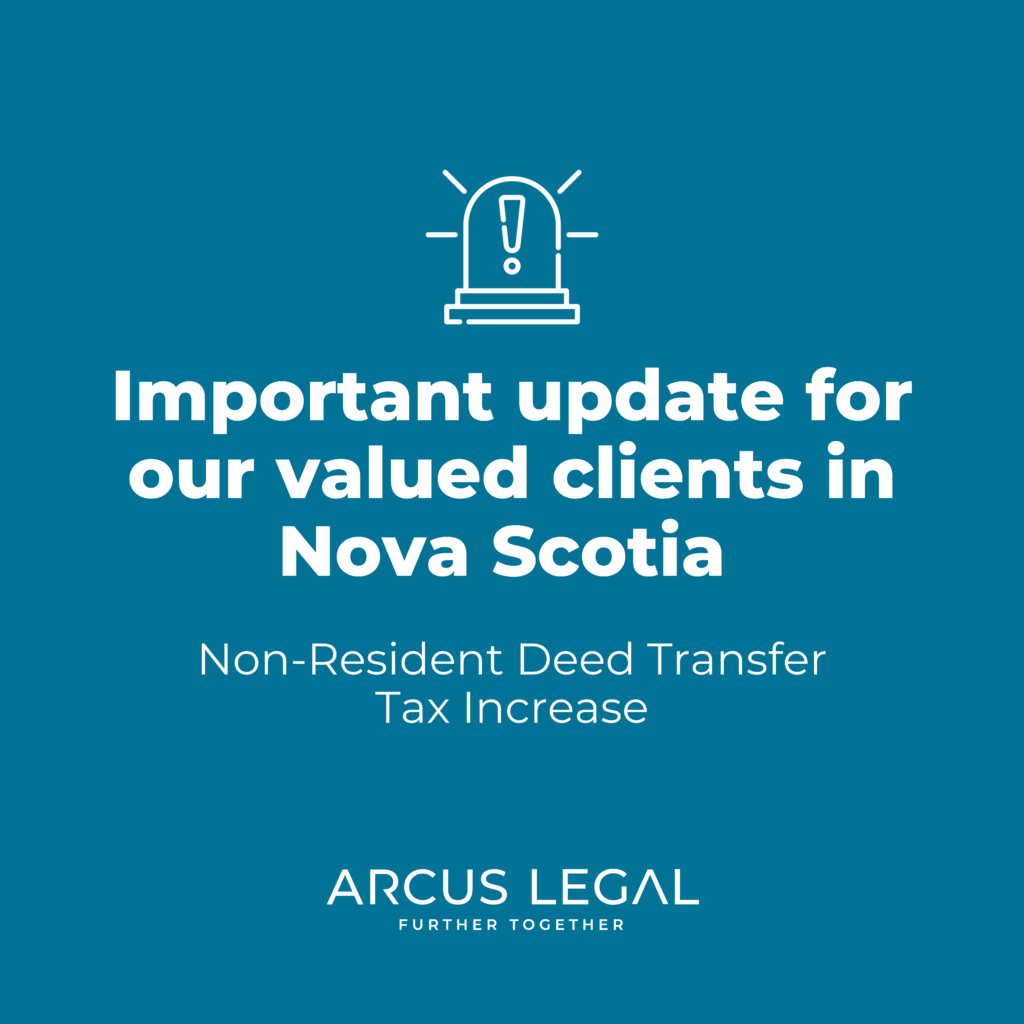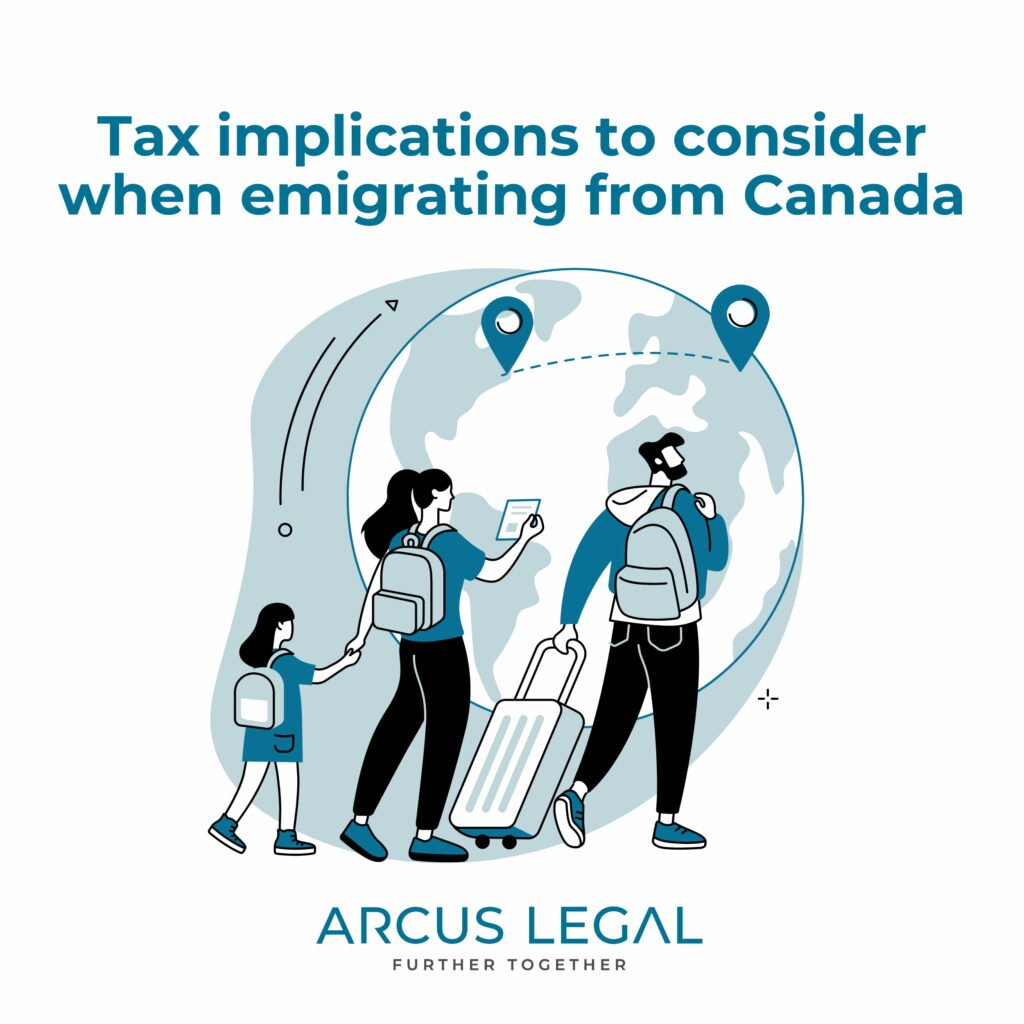
Please join us in congratulating Myles L. Bilodeau, JD, TEP, and Erin O’Brien Edmonds, KC, TEP, on being recognized by their peers in the 2026 Edition of Best Lawyers.
Myles Bilodeau has been recognized for his work in Tax Law, and Erin O’Brien Edmonds has been recognized for her work in both Real Estate Law, as well as in Trusts and Estates. Way to go guys!
Learn more about our lawyers and services here: https://www.arcuslegal.ca/

Congratulations to Matt Edmonds for being selected by his peers for recognition in the 2006 edition of Best Lawyers: Ones to Watch in Canada™ for his work in real estate law. The “Ones to Watch” awards are for lawyers earlier in their careers who have shown outstanding professional excellence in private practice.
Matt practises real estate law at Arcus Legal in Halifax, Nova Scotia. He represents clients buying and selling homes, condos, and vacant lands; mortgaging or refinancing real estate; and migrating properties to the Land Registration System. Matt applies his experience in legal tech to facilitate efficient and secure transactions in his property law practice.… [Read more]

Congratulations Cassie on achieving the Trust and Estate Practitioner (TEP) designation, granted by the Society of Trust and Estate Practitioners (STEP).
This designation is a mark of professional excellence and expanded knowledge in the fields of trusts and estates and reflects Cassie’s commitment to the highest standards of client service and technical excellence.
Please join us in congratulating Cassie on this significant professional milestone!

Nova Scotia’s Non-Resident Deed Transfer Tax Increasing to 10% in 2025.
Effective April 1, 2025, Nova Scotia is doubling its Non-Resident Deed Transfer Tax (“NRDTT”) from 5% to 10%.
This applies to:
Who Is Affected?:
Certain buyers may qualify for exemptions, including:
What does this mean for you?… [Read more]

Arcus Legal is excited to congratulate Erin O’Brien Edmonds, KC, TEP, for being named Lawyer of the Year in Halifax for Trusts & Estates in the 2025 edition of The Best Lawyers in Canada™!
This prestigious recognition is a testament to Erin’s unparalleled expertise, dedication, and leadership in the field. Her commitment to providing the highest level of service to her clients continues to inspire us all.
Congratulations, Erin! We’re incredibly proud of you and this remarkable achievement.
Read more about Erin here: https://www.arcuslegal.ca/erin-obrien-edmonds/

A huge congratulations to Myles L. Bilodeau, TEP, for being recognized by his peers in the 2025 edition of The Best Lawyers in Canada™ for his outstanding work in Tax Law.
Myles’ dedication, expertise, and commitment to excellence have earned him this well-deserved recognition. We are incredibly proud of his achievement and the high standard of service he continues to provide for our clients.
Way to go, Myles!
Read more about Myles here: https://www.arcuslegal.ca/myles-bilodeau/

Our team at Arcus Legal congratulates Erin O’Brien Edmonds, KC, TEP on an impressive 40 years in the practice of law.
Throughout her illustrious career, Erin has established herself as a leading expert in Real Estate and Wills & Estates, earning numerous accolades and the respect of her peers and clients alike.

We have been asked several times after the 2024 federal budget what the tax implications of emigrating from Canada will be. We do not specialize in emigration but decided to give a brief description to our clients of issues to consider. When a Canadian resident decides to emigrate, they are subject to certain tax implications that can significantly affect their financial planning. The primary consideration is the “departure tax,” which operates under the assumption that the individual has disposed of their property at its fair market value on the day they leave Canada.… [Read more]

A Henson Trust is a type of trust established primarily for the benefit of individuals with disabilities, particularly those who qualify to receive government benefits. The key feature of a Henson Trust is that it is designed to protect the assets held within the trust from being considered as assets of the beneficiary for the purpose of determining eligibility for these government assistance programs. The disability can be mental or physical. The term Henson Trust is named after the successful litigant in a landmark Ontario case. In Henson v. Ontario, the Ontario courts found that certain assets held inside of a fully discretionary trust are not to be considered in an assessment for benefits under a means-based government assistance scheme.… [Read more]

We are pleased to welcome our newest lawyer here at Arcus Legal, Cassandra (Cassie) Taylor.
Cassie has joined our Wills & Estates department, bringing over five years of experience in the areas of estate planning and estate administration. She looks forward to working with the Arcus team to assist individuals and families with their wills and estate needs. When she is not in the office, Cassie enjoys spending her time with her Australian Shepherds, Mya and Nora, and her horse, Luna.